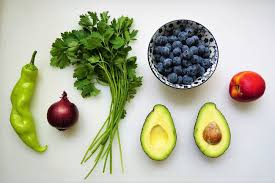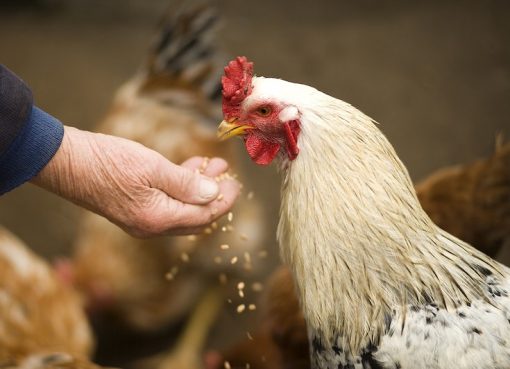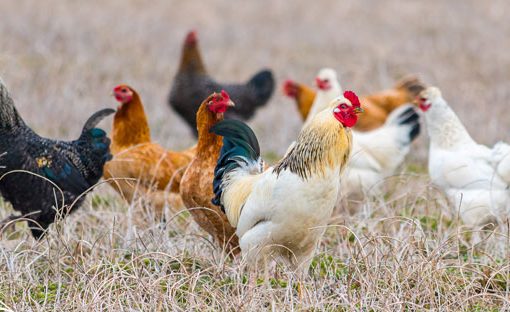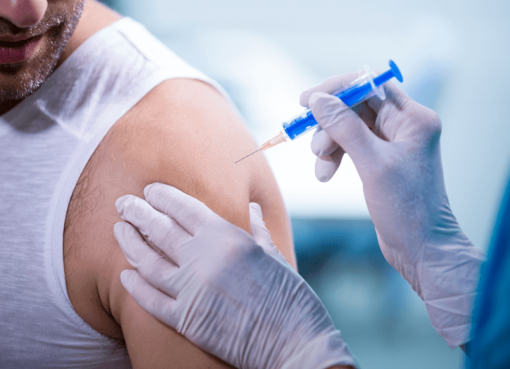Vitamin K is a crucial fat-soluble vitamin that plays a vital role in the synthesis of proteins necessary for blood coagulation and bone metabolism. In animal nutrition, understanding the role of vitamin K is essential for maintaining the health and productivity of animals. Vitamin K was discovered in 1935 to be an essential factor in the prevention of hemorrhagic symptoms in chicks. The discovery was made by a group of Danish scientists, who gave the name ‘koagulation factor’ to the vitamin, which became shortened to the K factor and eventually to vitamin K. A number of forms of vitamin K are known to exist. All compounds exhibiting vitamin K activity possess a 2-methyl-1,4-naphthoquinone ring (menadione), which animals are unable to synthesize but plants and bacteria can. The form of the vitamin present in plants is 2-methyl-3-phytyl-1,4-naphthoquinone, generally referred to as phylloquinone or vitamin K₁. The compound originally isolated from putrefied fishmeal and designated vitamin K, is now known to be only one of a series of K vitamins with unsaturated side chains synthesized by bacteria and referred to as menaquinones. The predominant vitamins of the menaquinone series contain six to ten isoprenoid (CH, CCH, CH:CH₂) side- chain units.
Vitamins K are relatively stable at ordinary temperatures but are rapidly destroyed on exposure to sunlight.
Sources:
Phylloquinone is a form of vitamin K found in most green leafy vegetables, with alfalfa, cabbage, and kale being particularly rich sources. Foods of animal origin generally contain phylloquinone due to the animal’s diet. However, egg yolk, liver, and fishmeal are typically good sources. Menaquinones, another form of vitamin K, are synthesized by bacteria in the digestive tracts of animals. Green leafy vegetables are excellent sources of vitamin K. Additionally, vitamin K can be found in liver, meat, milk, and egg yolk. A primary clinical sign of vitamin K deficiency in all species is impaired blood clotting. This can lead to increased clotting time and bleeding. In severe cases, vitamin K deficiency can result in subcutaneous and internal hemorrhages. Furthermore, vitamin K deficiency can impair bone mineralization due to insufficient levels of osteocalcin, a protein essential for bone health (Friedrich et al., 1988).
Metabolism:
Vitamin K is necessary for the synthesis of prothrombin in the liver. In the blood-clotting process, prothrombin is the inactive precursor of thrombin, an enzyme that converts the protein fibrinogen in blood plasma into fibrin, the insoluble fibrous protein that holds blood clots together. Prothrombin normally must bind to calcium ions before it can be activated. If the supply of vitamin K is inadequate, the prothrombin molecule is deficient in y- carboxylation acid, a specific amino acid responsible for calcium binding. Proteins containing y-carboxylation acid, dependent on vitamin K for their formation, are also present in bone, kidney and other tissues.
Deficiency symptoms:
Vitamin K deficiency has not been reported in ruminants, horses, and pigs under normal circumstances. This is generally attributed to the sufficient production of vitamin K by bacteria within their digestive tracts. Numerous microorganisms, including Escherichia coli, are known to synthesize vitamin K. Medications that disrupt gut bacteria can potentially reduce vitamin K production. A disease in cattle known as “sweet clover disease” is linked to vitamin K deficiency. Sweet clover (Melilotus albus) naturally contains compounds called coumarins. When preserved as hay or silage, these coumarins can be converted by fungi, such as Aspergillus species, into dicoumarol. Dicoumarol reduces blood prothrombin levels, impairing the blood clotting process. Administering vitamin K to affected animals can alleviate this disease. Due to its effects, dicoumarol is sometimes referred to as an “anti-vitamin.” According to the NRC’s publication, “Vitamin Tolerances of Animals” (1987), based on limited available information, high consumption of phylloquinone, the natural form of vitamin K, has not resulted in toxicity. Additionally, menadione, the synthetic form of vitamin K commonly used in animal feed, can be added at levels up to 1,000 times the dietary requirement without adverse effects in most animals, except for horses. Chicks exhibiting vitamin K deficiency may experience anemia and delayed blood clotting times. This can make them prone to injuries and potentially fatal bleeding.
In birds, it is uncertain whether microbially synthesized vitamin K can be directly absorbed from the digestive tract. The site of its formation is too far down the digestive system to allow for adequate absorption, except through the ingestion of fecal material (coprophagy). Poultry, such as broiler chickens and turkeys, are more susceptible to vitamin K deficiency compared to other animals due to their shorter digestive tracts and rapid food passage. Ruminant animals, like cattle and sheep, do not typically require a dietary source of vitamin K due to the microbial synthesis that occurs in their rumen, a compartment of their stomach. As horses are herbivores, their vitamin K needs can be met from plant sources and microbial synthesis in their lower gut.
Conclusion:
Vitamin K is an essential nutrient in animal nutrition, playing a critical role in blood coagulation, bone metabolism, and various other physiological processes. Understanding its sources, metabolism, mechanism of action, and the impact of deficiency is crucial for maintaining the health and productivity of domestic animals. Through proper dietary management and supplementation, vitamin K deficiency can be effectively prevented, ensuring the well-being of livestock and their optimal performance.
References:
Friedrich, W. (1988). Vitamins. Walter de Gruyter, Inc. McDowell, L. R. Vitamins in Animal and Human Nutrition. 2000. 2nd Ed. Iowa State Univ. Press, Ames.
National Research Council (1987). Vitamin Tolerance of Animals. National Academy Press. Washington, DC.
Shearer, M.J. (1995). Vitamin K1. Lancet. 345 (8944): 229-234.
Author information:
Dr. Mamata Joysowal, Assistant professor, Animal Nutrition department, CVSc, AAU, Khanapara, Guwahati-22, Email: mamtajaiswal525@gmail.com
Dr. Robin Bhuyan, Professor; Animal Nutrition department, CVSc, AAU, Khanapara, Guwahati-22. Email: robin.bhuyan@aau.ac.in
Dr. Bibeka N. Saikia, Professor; Animal Nutrition department, CVSc, AAU, Khanapara, Guwahati-22. Email: bibeka.saikia@aau.ac.in
Dr. Gunaram Saikia, Professor, Animal Nutrition department, CVSc, AAU, Khanapara, Guwahati-22. Email: gunaram.saikia@aau.ac.in
Dr. Kanak Barman, Assistant professor, Animal Nutrition department, CVSc, AAU, Khanapara, Guwahati-22. Email: kanak.barman@aau.ac.in




